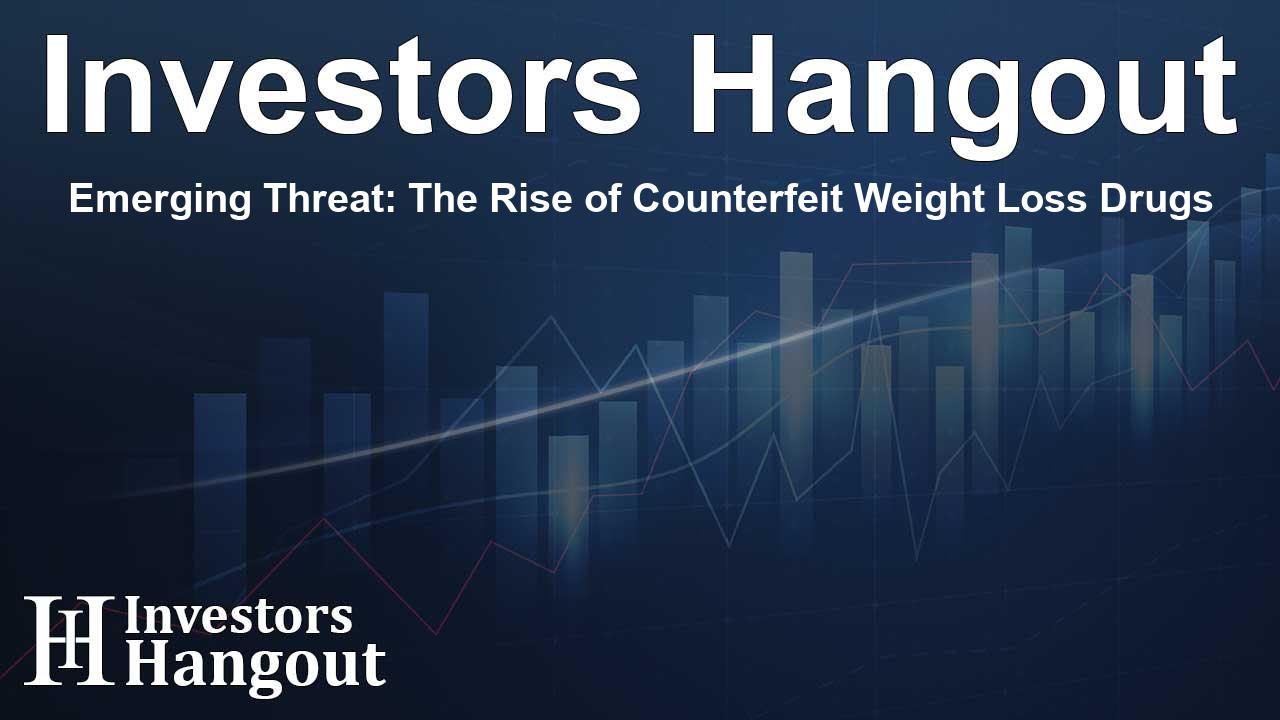Emerging Threat: The Rise of Counterfeit Weight Loss Drugs

The Counterfeit Drug Crisis in Weight Loss Treatments
As the demand for effective weight loss solutions rises, medications such as Novo Nordisk A/S' Ozempic and Eli Lilly And Co's Mounjaro have seen significant shortages. This vacuum has paved the way for an alarming surge in counterfeit and unauthorized medications that pose serious health risks. Authorities are sounding the alarm as they uncover this illicit market that spans multiple countries, jeopardizing the safety of unsuspecting consumers.
FDA and Drug Availability
Recently, officials announced that the shortages faced regarding Eli Lilly’s tirzepatide, a notable GLP-1 medication, have come to an end. This declaration signifies progress in ensuring the availability of genuine weight loss treatments; however, it has not stifled the dangerous trend of counterfeit drugs pervading the market.
The Investigation Unveiled
An investigation revealed shocking findings about the illegal sales of weight loss drugs. Medications originally intended for international markets were discovered being illegally imported into the U.S., often bypassing regulation and safety protocols. These counterfeit alternatives are particularly enticing to consumers searching for affordable weight loss options.
The Safety Risks of Counterfeit Medications
In a revealing report, investigators purchased what was purported to be Novo Nordisk's Ozempic. The product, sourced from Laver Beauty, was sold at a price significantly lower than its typical U.S. list price. However, upon arrival from China, the shipment’s lack of proper refrigeration raised red flags, casting doubt on its safety and effectiveness. Novo Nordisk later confirmed that this was a “diverted legitimate product,” originally intended for distribution in China, thus banning its use in the U.S.
The Role of Regulatory Authorities
Health authorities have voiced grave concerns regarding the infiltration of counterfeit products into the market. Authorities in the U.K. have reported uncovering a worrying increase in counterfeit weight loss medications, with significant numbers of Ozempic pens confiscated. Andy Morling of the U.K.'s Medicines and Healthcare Products Regulatory Agency pointed out that it is standard for criminals to exploit supply-demand gaps, making these medications prime targets for counterfeiting operations.
U.S. Enforcement Actions
U.S. Customs and Border Protection (CBP) is actively engaged in the fight against counterfeit weight loss drugs. Numerous snapshots of drugs were seized at key entry points as CBP officials work to intercept these illicit transactions. Sal Ingrassia, a CBP port director, stated that weight loss drugs like Ozempic and Wegovy have become frequent targets for seizures. Despite these efforts, a considerable number of counterfeit products still slip through the cracks, finding their way to customers who often place orders through online platforms or social media.
Pharmaceutical Companies Respond
In light of rising counterfeit threats, pharmaceutical companies are ramping up their collaborations with local law enforcement and cybersecurity firms. For instance, associations with companies like BrandShield are critical step to dismantling illegal operations selling counterfeit medications. While organizations like Novo Nordisk and Eli Lilly develop innovative therapies, including new treatments like retatrutide, criminals are unfortunately already ahead, creating fake versions even before the product is officially launched.
Market Reactions
Amid these challenges, stock prices of leading players in the weight loss drug market are responding to the ongoing crisis. At the last analysis, NVO stock was recorded at a rise of 2.16%, landing at $120.07, while LLY stock increased by 1.53%, valued at $924.65. These movements underscore the struggle that pharmaceutical companies face amid associated risks surrounding their products.
Frequently Asked Questions
What are the risks associated with counterfeit weight loss drugs?
Counterfeit weight loss drugs may not be safe or effective, and can pose serious health risks, including infections due to improper handling and lack of sterility.
How can consumers identify counterfeit medications?
Consumers should be cautious of significantly lower prices and check for proper refrigeration during shipping. Purchasing from verified pharmacies is crucial.
What actions are authorities taking against counterfeit drug distribution?
Authorities, including the CBP, are actively seizing counterfeit drugs at ports and collaborating with pharmaceutical companies to shut down illegal operations.
Why is there such high demand for weight loss medications?
The increasing prevalence of obesity and associated health conditions leads many individuals to seek effective weight loss solutions, driving demand for these medications.
What steps are pharmaceutical companies taking to combat counterfeit drugs?
Pharmaceutical companies are investing in enforcement collaborations and cybersecurity measures to dismantle illegal operations and prevent counterfeit sales.
About Investors Hangout
Investors Hangout is a leading online stock forum for financial discussion and learning, offering a wide range of free tools and resources. It draws in traders of all levels, who exchange market knowledge, investigate trading tactics, and keep an eye on industry developments in real time. Featuring financial articles, stock message boards, quotes, charts, company profiles, and live news updates. Through cooperative learning and a wealth of informational resources, it helps users from novices creating their first portfolios to experts honing their techniques. Join Investors Hangout today: https://investorshangout.com/
Disclaimer: The content of this article is solely for general informational purposes only; it does not represent legal, financial, or investment advice. Investors Hangout does not offer financial advice; the author is not a licensed financial advisor. Consult a qualified advisor before making any financial or investment decisions based on this article. The author's interpretation of publicly available data shapes the opinions presented here; as a result, they should not be taken as advice to purchase, sell, or hold any securities mentioned or any other investments. The author does not guarantee the accuracy, completeness, or timeliness of any material, providing it "as is." Information and market conditions may change; past performance is not indicative of future outcomes. If any of the material offered here is inaccurate, please contact us for corrections.